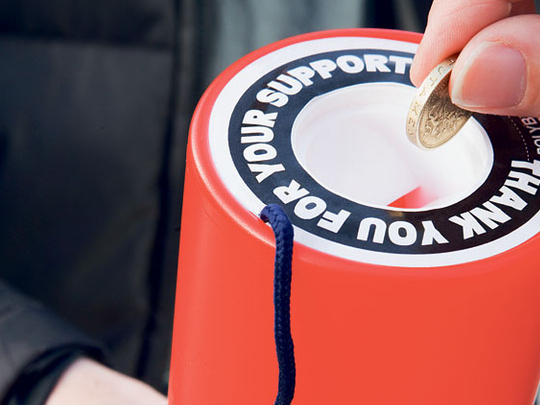
It feels good to give money to a worthwhile cause, but sometimes people can't help but hesitate especially when they're giving a significant amount.
To avoid feeling the pinch, financial experts recommend giving small amounts on a regular basis. Some people do this by setting up a separate account for charity that automatically deducts minimal amounts from their savings.
"Giving on a monthly basis is great because so many charities such as children's homes and teaching organisations can budget for the future when they have consistent income. In many ways, regular giving is of more value to an organisation than ad hoc giving which does not allow planning based on expected revenue," said Steve Gregory of Holborn Assets.
"Many religious organisations expect ten per cent of income to be tithed in addition to personal charitable giving. It may surprise people to know that many people obey the call to tithe and give on top of the tithe. I can promise this : I have never met someone who tithed into personal financial disaster. On the contrary, people who tithe tend to have the best managed finances of all the people I meet. They tell me their incomes rise with their commitment to tithe," he said.
While a regular charity contribution is ideal, Henna Sohail of ISDM (a debt management consultancy) warned that it is critical for donors to determine their capacity to pay before parting with their money.
"Setting up an auto debit instruction can be recommended and has no disadvantage, provided one's financial situation permits one to do so. As rewarding as it may be to help the needy, it is extremely important to help your own self first," said Henna. "Thus, one should determine an amount that he or she would like to contribute after carefully evaluating one's capacity to do so and not out of an emotional impulse to do charity. Never make charitable promises that you know you cannot keep. And don't forget to keep track of your charitable contributions," she added.
Another way to help and benefit at the same time is to avail of the tax exempt status.
"In some countries, giving to charity attracts income tax benefits which means the taxman encourages giving by adding a tax credit. Where a Dubai resident might not qualify, a relative back home may well do so. So consider sending to the relative to pick up the credit and enhance the donation," Gregory said.








